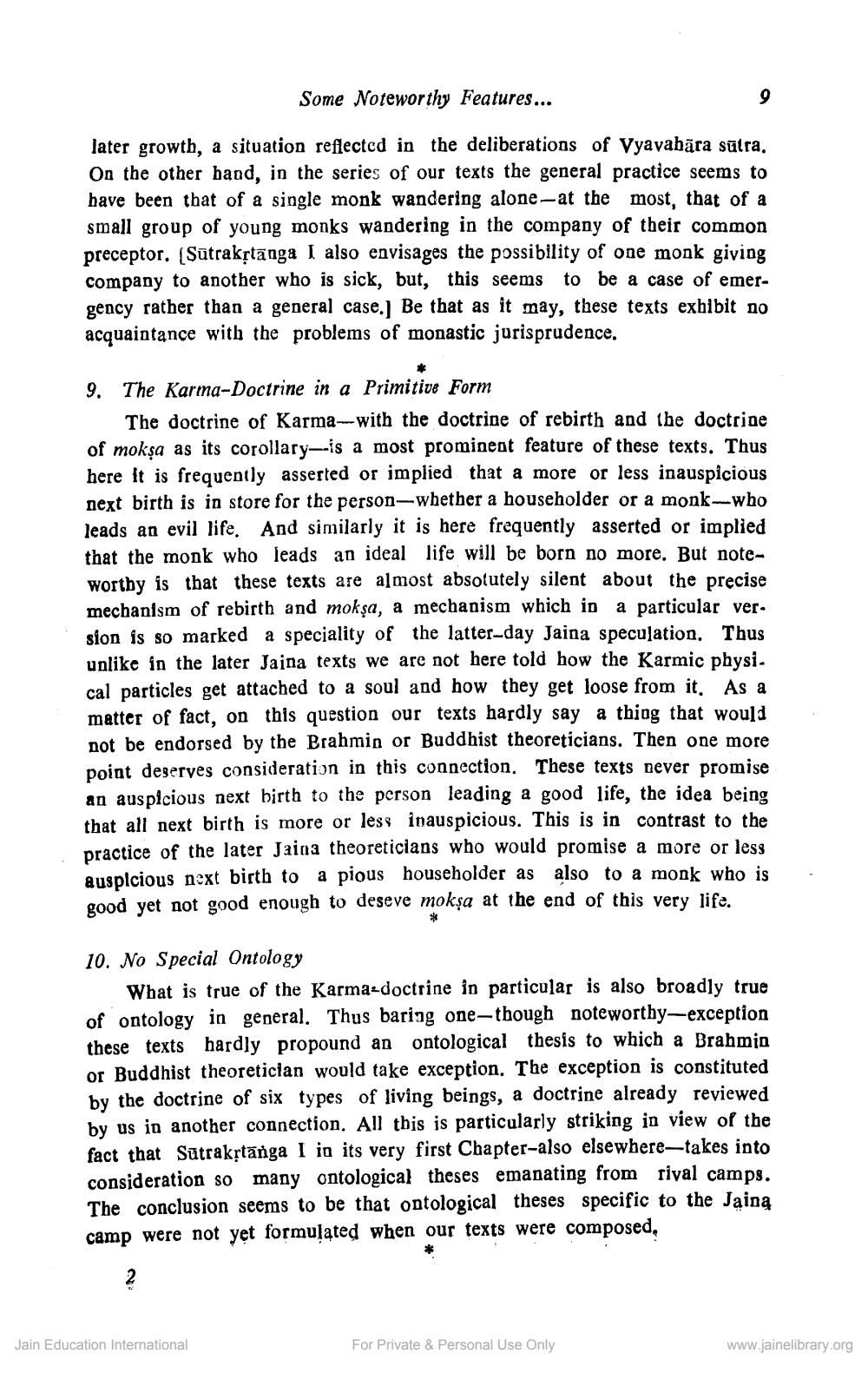________________
Some Noteworthy Features...
later growth, a situation reflected in the deliberations of Vyavahāra sutra. On the other hand, in the series of our texts the general practice seems to have been that of a single monk wandering alone- at the most, that of a small group of young monks wandering in the company of their common preceptor. (Sūtrakṣtanga I also envisages the possibility of one monk giving company to another who is sick, but, this seems to be a case of emergency rather than a general case. Be that as it may, these texts exhibit no acquaintance with the problems of monastic jurisprudence.
9. The Karma-Doctrine in a Primitive Form
The doctrine of Karma---with the doctrine of rebirth and the doctrine of mokşa as its corollary-is a most prominent feature of these texts. Thus here it is frequently asserted or implied that a more or less inauspicious next birth is in store for the person-whether a householder or a monk-who leads an evil life. And similarly it is here frequently asserted or implied that the monk who leads an ideal life will be born no more. But noteworthy is that these texts are almost absolutely silent about the precise mechanism of rebirth and mokşa, a mechanism which in a particular ver. sion is so marked a speciality of the latter-day Jaina speculation. Thus unlike in the later Jaina texts we are not here told how the Karmic physi. cal particles get attached to a soul and how they get loose from it. As a matter of fact, on this question our texts hardly say a thing that would not be endorsed by the Brahmin or Buddhist theoreticians. Then one more point deserves consideration in this connection. These texts never promise an auspicious next birth to the person leading a good life, the idea being that all next birth is more or less inauspicious. This is in contrast to the practice of the later Jaina theoreticians who would promise a more or less auspicious next birth to a pious householder as also to a monk who is good yet not good enough to deseve mokļa at the end of this very life.
10. No Special Ontology
What is true of the Karma-doctrine in particular is also broadly true of ontology in general. Thus baring one-though noteworthy-exception these texts hardly propound an ontological thesis to which a Brahmin or Buddhist theoretician would take exception. The exception is constituted by the doctrine of six types of living beings, a doctrine already reviewed by us in another connection. All this is particularly striking in view of the fact that Sutrakrtänga I in its very first Chapter-also elsewhere-takes into consideration so many ontological theses emanating from riyal camps. The conclusion seems to be that ontological theses specific to the Jainą camp were not yet formulated when our texts were composed,
Jain Education International
For Private & Personal Use Only
www.jainelibrary.org




